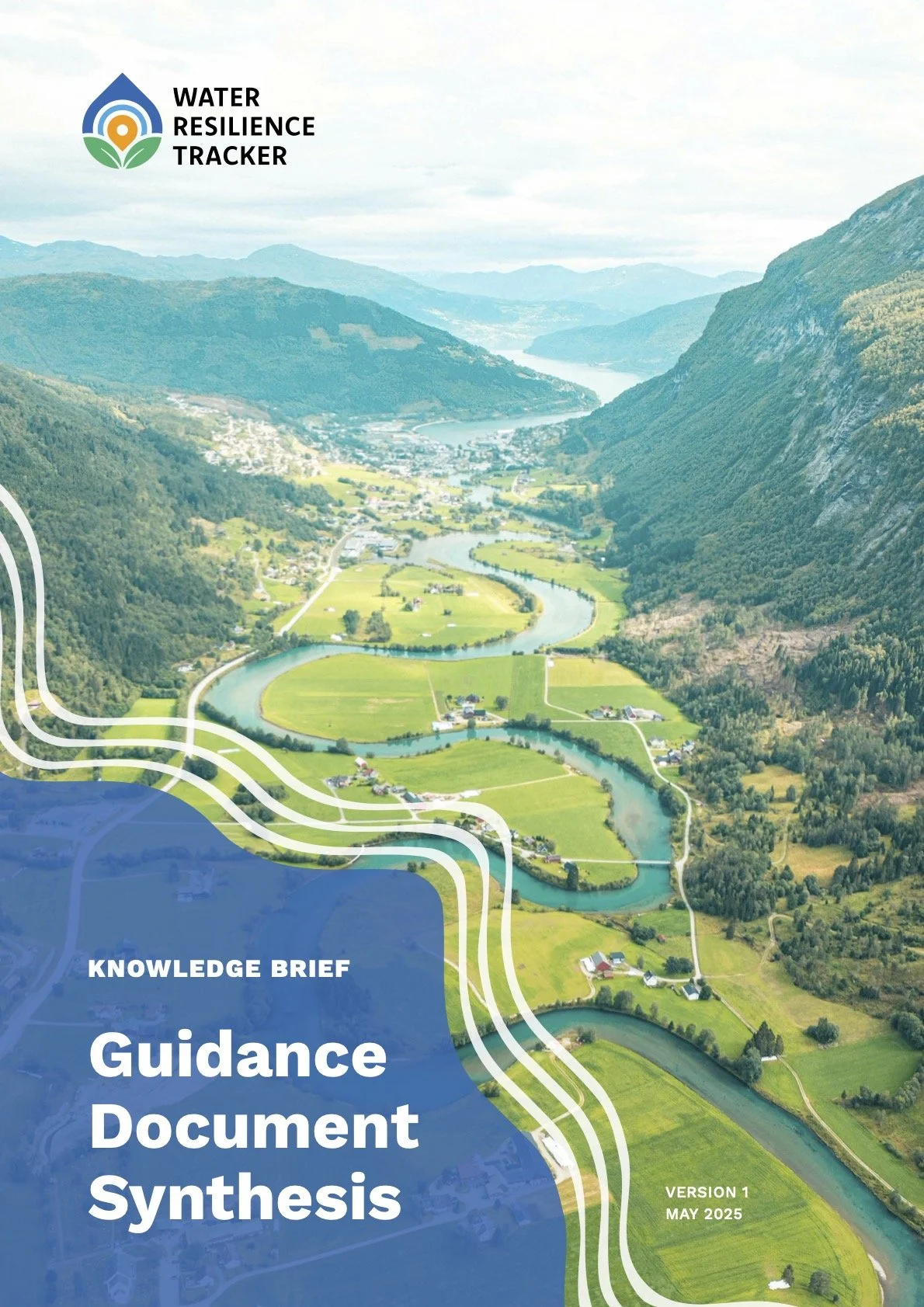WRT Guidance Document Synthesis
Version 1 (2025): English, PDF
Water resilience provides an essential, informative compass for most climate change strategies, policies, and actions. All countries face serious strategic choices and tradeoffs in how they build adaptation and resilience, particularly in setting Greenhouse Gas (GHG) mitigation and climate adaptation priorities. While many national climate plans recognize the critical role of water in achieving their climate commitments and adaptation goals, most do not look at water resources in a systematic way as an enabler of climate resilience. Climate mitigation and adaptation strategies alike often require an intensified approach to water use, specifically one that recognizes that water is a resource associated with increasing uncertainties.
The Water Resilience Tracker for National Climate Planning (WRT) was created for this purpose. Acknowledging the complex role that water plays in climate change, Water Resilience Tracker facilitates the reframing of water as the source for solutions to enable adaptation within the context of climate change. By engaging with the Water Resilience Tracker, countries can ensure that their climate and development planning instruments take a systemic, water-wise approach to climate adaptation and resilience.
The Water Resilience Tracker uses a questionnaire with an accompanying Guidance Document to provide support when navigating through the many interrelated aspects of the self-assessment process.
The Guidance Document resembles a reference manual, intended to enable national climate planners to effectively apply the Water Resilience Tracker and interpret results. It provides brief explanations, examples, and relevant resources and tools for responding to each of the questions in the Water Resilience Tracker questionnaire. A user can go to any specific question and find more information about the intention and assumptions associated with that question. However, not all questions will be relevant to all users.

